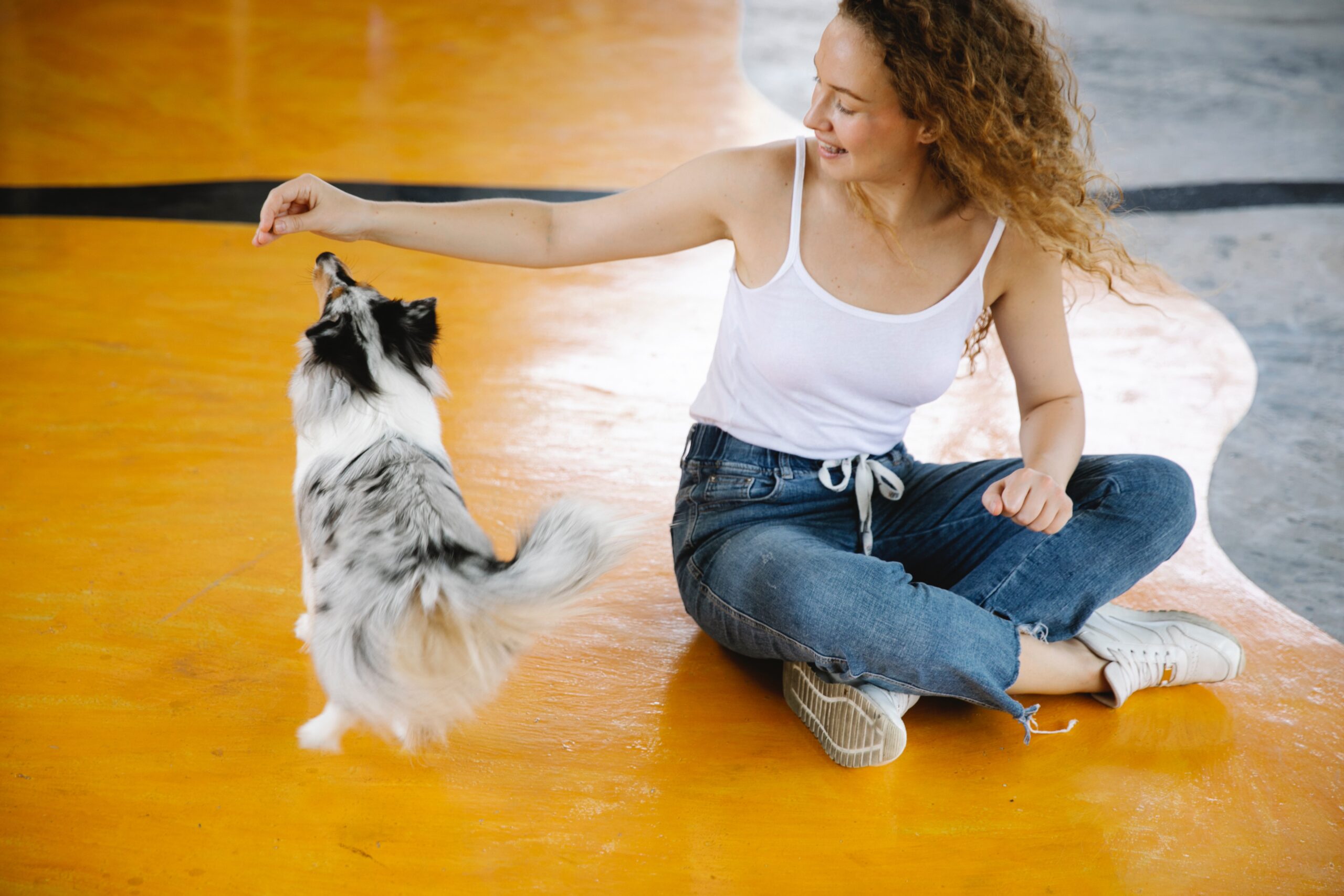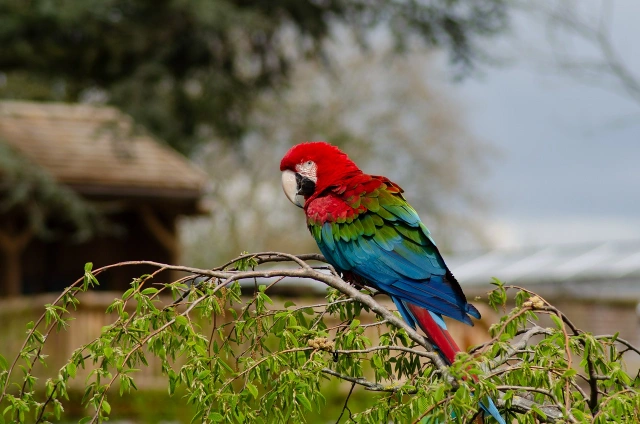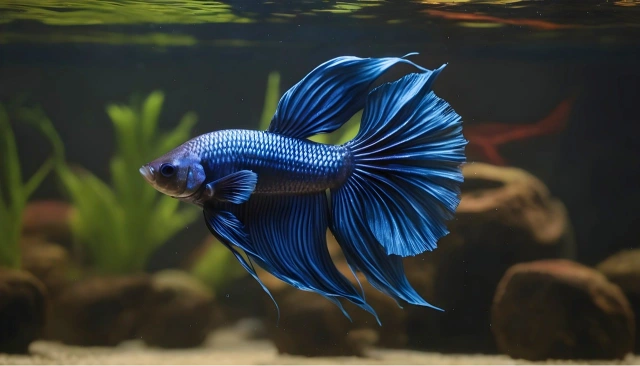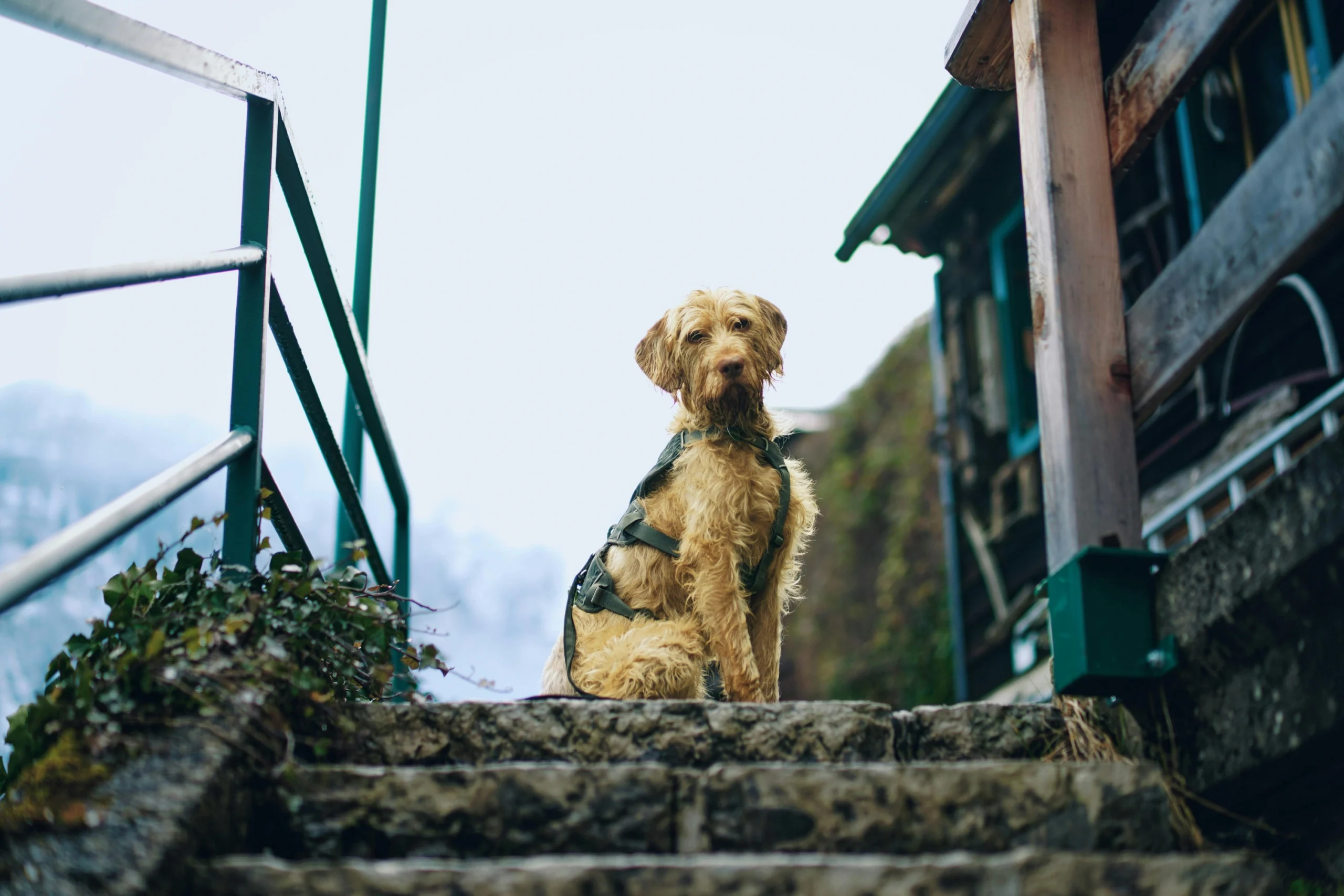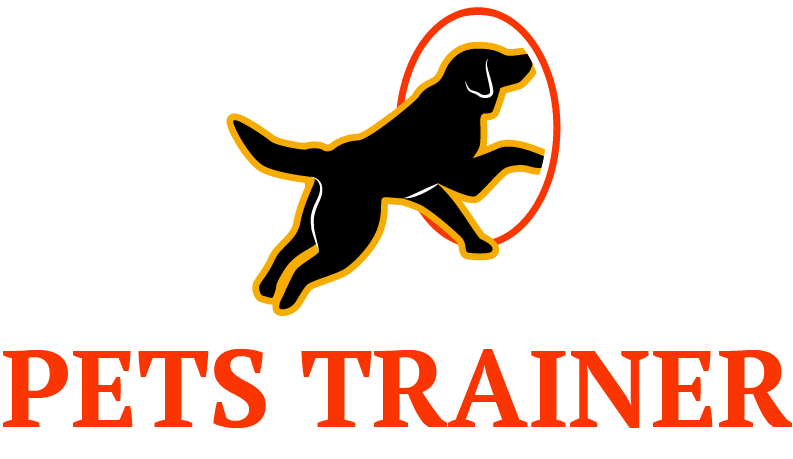Table of Contents
ToggleWhen it comes to big dogs, Mastiffs are the gentle giants that steal everyone’s hearts. These lovable creatures are famous for their affectionate nature and make the perfect companions for families and individuals alike. But don’t be fooled by their adorable puppy faces; raising Mastiff puppies requires proper care and training to ensure they grow up into well-behaved adults.
In this post, I will explore essential aspects of Mastiff puppies care and training to help you raise a well-adjusted and obedient canine companion.
Preparing Your Home
Before bringing your Mastiff puppies home, it’s crucial to prepare your living space to accommodate their needs. Mastiffs can grow to be quite large, so make sure you have enough space for them to move around comfortably. Here are some home preparation tips:
Secure Your Yard
When it comes to preparing your home for a new Mastiff puppies, one crucial aspect is securing your yard. These majestic dogs are strong and have an instinct to explore, so it’s essential to ensure that they can’t wander off or get into trouble when left unattended outside. A sturdy and secure fence is the first line of defense in keeping your Mastiff safe.
While any fencing may work for smaller breeds, it’s important to choose a fence that can contain the power and size of a Mastiff. Opt for materials like wood or metal that are durable and difficult to break through.
The study has suggested that you make sure the fence is high enough so that your Mastiff cannot jump over it easily. If you have other pets or children in your household, consider installing secure gates within the yard to prevent any potential interactions that could lead to accidents or injuries.
Puppy-Proof Your Home
When bringing new mastiff puppies into your home, it’s crucial to ensure their safety by puppy-proofing your living space. Mastiffs are large, strong dogs that can be quite curious and playful. To prevent any accidents or damage, take the time to identify potential hazards around your house and make the necessary adjustments.
Start by securing all electrical cords and cables out of reach from your rambunctious pup. Consider using cord protectors or bitter apple sprays to discourage chewing behaviors. Lock away any cleaning supplies, chemicals, or medications in cabinets that your furry friend cannot access. It’s also a good idea to install childproof latches on lower cabinets to keep them from exploring and potentially ingesting harmful substances.
Examine each room for small objects that could pose a choking hazard. Remember that mastiffs have powerful jaws, which they may use for exploration purposes; chewing on anything within their reach can become a serious problem. Remove items like coins, batteries, jewelry, small toys – basically anything you would not want them gnawing on.
Designate a Sleeping Area
One important aspect is designating a sleeping area. Consider creating a cozy and comfortable space where your furry friend can rest and recharge. Instead of simply placing a bed in any random corner of your house, think about the location carefully; ideally, it should be in an area that is quiet and free from distractions. This will not only provide a peaceful environment for your pup to sleep but also help with their overall training and behavior.
According to research, when choosing the right sleeping spot for your Mastiff puppy, keep in mind their size and potential growth. These gentle giants can reach impressive sizes as adults, so it’s crucial to select an area that allows them enough room to stretch out comfortably without feeling cramped or confined.
Investing in a quality dog bed suited for large breeds is essential for providing adequate support and cushioning while accommodating their size requirements. Consider incorporating elements into the designated sleeping area that promote relaxation. For instance, soft lighting or calming music can create a soothing ambiance that helps your Mastiff puppy settle down at night.
Punishing Your Dog
Punishment for unwanted behavior in dogs is no longer considered ethical nor helpful as a training method; harsh treatment only stops undesirable behavior and does not teach proper life habits or living styles. Your dog may fear another dog and, in certain situations, become hostile towards it.
Nutrition and Feeding
Proper nutrition is vital for your Mastiff’s growth and overall health. Consult your veterinarian for specific dietary recommendations, but here are some general guidelines:
Puppy Food
When it comes to caring for Mastiff puppies, nutrition and feeding are crucial aspects that should never be overlooked. These gentle giants require specially formulated puppy food that meets their unique dietary needs. With their rapid growth rate and potential for joint issues, it’s essential to choose a high-quality food that promotes optimal bone development.
One important factor to consider when selecting puppy food for your Mastiff is the protein content. Protein aids in muscle development and growth, so look for a formula with a higher percentage of quality animal-based proteins like chicken or beef.
Additionally, Omega-3 fatty acids such as DHA play a vital role in brain development, making them essential for young puppies. Be sure to opt for puppy food that contains added DHA-rich ingredients such as fish oil or salmon meal.
Feeding Schedule
When it comes to ensuring the proper growth and development of adorable Mastiff puppies, establishing a consistent feeding schedule is key. These large breed dogs have specific nutritional needs that must be met in order for them to thrive. As responsible pet owners, we must strive to provide our furry companions with the best possible start in life.
Feeding your Mastiff puppy on a regular schedule not only helps them establish a routine but also aids digestion and prevents overeating. It is recommended to feed young Mastiffs three times a day until they reach around six months of age. After this point, transitioning to two meals per day is ideal.
By sticking to a set schedule, you are better able to monitor their food intake and prevent weight gain or obesity, which can be detrimental to their overall health.
Avoid Overfeeding
Mastiff puppies are known for their large size and appetites, but overfeeding them can have detrimental effects on their health. It is important to understand that proper nutrition and feeding practices are crucial during their growth stages. Overfeeding mastiff puppies can lead to rapid weight gain, which puts unnecessary strain on their developing joints and bones.
Instead of providing unlimited amounts of food, it is recommended to follow a structured feeding schedule based on the puppy’s age and weight. This will help prevent overeating and ensure that they receive the right amount of nutrients without excessive calories. Additionally, monitoring the puppy’s body condition score can also be helpful in determining if adjustments need to be made to their diet.
Socialization
Early socialization is key to preventing behavioral issues in your Mastiff. Introduce your puppy to a variety of people, animals, and settings to help them grow into a well-adjusted adult. Here’s how:
Puppy Classes
One of the most effective ways to socialize Mastiff puppies is through puppy classes. These classes provide a safe and controlled environment for your gentle giants to interact with other dogs and people. While large breed puppies like Mastiffs may be intimidating to some, early socialization helps them develop proper behavior and ensures they grow up to be well-adjusted adults.
Apart from learning how to behave around other dogs, puppy classes can also teach your Mastiff valuable skills such as basic obedience commands. Training exercises in a group setting expose them to distractions, helping them learn to focus on you even in the presence of other dogs.
These classes give you an opportunity to bond with your puppy while reinforcing positive behaviors. Remember that a well-socialized Mastiff is more likely to become a confident and friendly adult dog who feels comfortable around people and animals alike.
Exposure
Exposure plays a vital role in socialization, as it introduces Mastiffs to different sights, sounds, smells, and experiences from an early age. Start by gradually exposing your puppy to new people of various ages, sizes, and appearances.
Encourage positive interactions by rewarding calm behavior like wagging tails or relaxed body postures. Organized puppy playgroups can provide opportunities for your Mastiff pup to interact with other dogs in a controlled environment.
Positive Reinforcement
By using positive reinforcement techniques such as treats, praise, or playtime whenever your mastiff puppy engages in friendly and appropriate behavior during socialization experiences, you can create a positive association with those situations. This will not only help them develop better social skills but also increase their confidence and overall well-being.
According to research, positive reinforcement can be especially beneficial when correcting common behavioral issues that may arise during the socialization process. For example, if your mastiff puppy shows signs of fear or anxiety when encountering new people or experiences, using positive reinforcements like treats or verbal praise can help reassure them and build trust.
Obedience Training
Training your Mastiff puppy is essential to ensure they are well-behaved and responsive to commands. Here are some training tips:
Basic Commands
When it comes to obedience training for Mastiff puppies, mastering a few basic commands is essential. These commands not only help form a strong bond between you and your furry friend but also ensure they are well-behaved and responsive in various situations. One of the fundamental commands to teach your Mastiff pup is to sit.
This command is relatively easy to train as most puppies naturally sit down when their lower back is gently pressed. By rewarding this behavior with treats or praise, your Mastiff will quickly associate sitting with positive reinforcement. Next on the list of crucial commands to teach your Mastiff puppy is to stay.
This command proves handy in a variety of scenarios, from preventing them from barreling out an open door to keeping them calm while you prepare their meal.
Start by having your pup sit down and gradually extend the amount of time they stay put before rewarding them. As their understanding grows, practice this command in different settings with increased distractions, reinforcing their ability to stay focused on you.
Lastly, every dog owner must impart the command to their fluffy companions. This command could save your pup’s life if they were ever in danger or about to run into hazardous situations. Begin training this command by getting down on their level and calling them using an upbeat tone while opening your arms invitingly. When they successfully come towards you, lavish them with praise or treat rewards as an incentive for future recalls.
Consistency
Consistency is the key to successful obedience training, especially when it comes to training Mastiff puppies. These gentle giants may have a stubborn streak, making it crucial for owners to establish clear rules and boundaries from day one. By maintaining consistency in your training methods and expectations, you can effectively shape your Mastiff’s behavior positively.
One important aspect of consistency is using the same cues and commands consistently. For example, if you use the word sit to command your puppy to sit, stick with that word instead of mixing it up with alternatives like park it or take a seat. Consistency in language helps your Mastiff puppy understand what you want from them and reduces confusion.
Gentle Discipline
The aspect of gentle discipline is understanding that puppies learn through exploration and playfulness. Mastiffs are naturally curious creatures, so incorporating interactive games into their training sessions can make the process more enjoyable for both of you.
Whether it’s hide-and-seek with toys or teaching basic commands while playing fetch, these activities not only provide mental stimulation but also reinforce obedience skills in a fun and engaging way.
By embracing the principles of gentle discipline in obedience training for mastiff puppies, you encourage their willingness to learn while building trust and respect.
Health Care
When it comes to health care for your beloved Mastiff puppies, there are a few important factors to consider. First and foremost, regular veterinary check-ups are essential in ensuring your pup’s overall well-being. During these check-ups, the vet will be able to monitor your puppy’s growth, administer necessary vaccinations, and address any potential health concerns that may arise.
Another critical aspect of health care for Mastiff puppies is proper nutrition. These gentle giants require a balanced diet consisting of high-quality dog food specifically formulated for large-breed puppies. It’s important not to overfeed them as their fast growth can put stress on their joints and increase the risk of skeletal issues later in life.
Consulting with your vet or a canine nutritionist can help you determine the right portion sizes and dietary needs for your furry friend. In addition to medical attention and nutrition, mental stimulation is an often overlooked component of overall health care for Mastiff puppies.
These intellectual dogs thrive on mental challenges and must be exercised on a regular basis to avoid boredom and destructive behavior. Engaging in activities such as puzzle toys, obedience training sessions, or even teaching them new tricks can provide both physical exercise and stimulate their minds.
Conclusion
In conclusion, caring for and training Mastiff puppies requires patience, consistency, and a gentle approach. These gentle giants have specific needs that must be met in order for them to grow into well-behaved, confident dogs.
By providing proper socialization, positive reinforcement training methods, and plenty of exercise and mental stimulation, Mastiff owners can ensure their puppies develop into happy and obedient companions. It is important to remember that each puppy is unique and will require individualized care and attention. With dedication and love, the journey of raising a Mastiff puppy can be immensely rewarding.
FAQs
1. How often should I feed my Mastiff puppies?
It is recommended to feed your Mastiff puppies three times a day until they reach around six months of age, and then transition to two meals a day.
2. What type of food should I give my Mastiff puppies?
Your Mastiff puppy’s diet should consist of high-quality, balanced dog food that is specifically formulated for large-breed puppies.
3. How much exercise does a Mastiff puppie need?
While it is important to provide regular exercise for your Mastiff puppies, avoid excessive exercise during the first year as it can put stress on their developing bones and joints. Aim for short walks and play sessions to prevent overexertion.
4. How do I house-train my Mastiff puppies?
Consistency and positive reinforcement are key when house training your Mastiff puppies. Establish a routine for bathroom breaks, reward them for successful elimination outside, and be patient during the learning process.
5. Are Mastiffs prone to health issues?
Yes, like many large breeds, Mastiffs are prone to certain health issues, such as hip dysplasia, bloat, and heart problems. Regular vet check-ups and maintaining a healthy lifestyle can help minimize these risks.
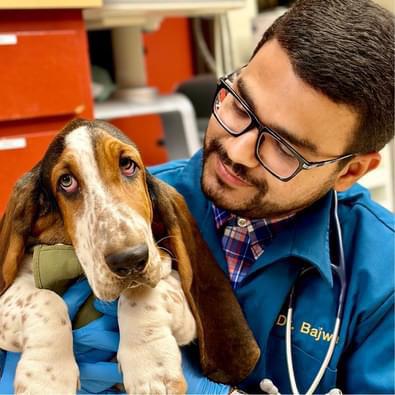
Dr. Usman Bajwa, a dedicated veterinarian with a passion for pets, brings years of expertise to the world of pet grooming. Through his blog, he shares valuable insights and practical tips to help pet owners provide the best care for their furry companions. With a focus on promoting the health and happiness of pets, Dr. Usman articles offer easy-to-follow guidance on grooming techniques. When he’s not writing, you can find him at his clinic or enjoying time with his own beloved pets.
